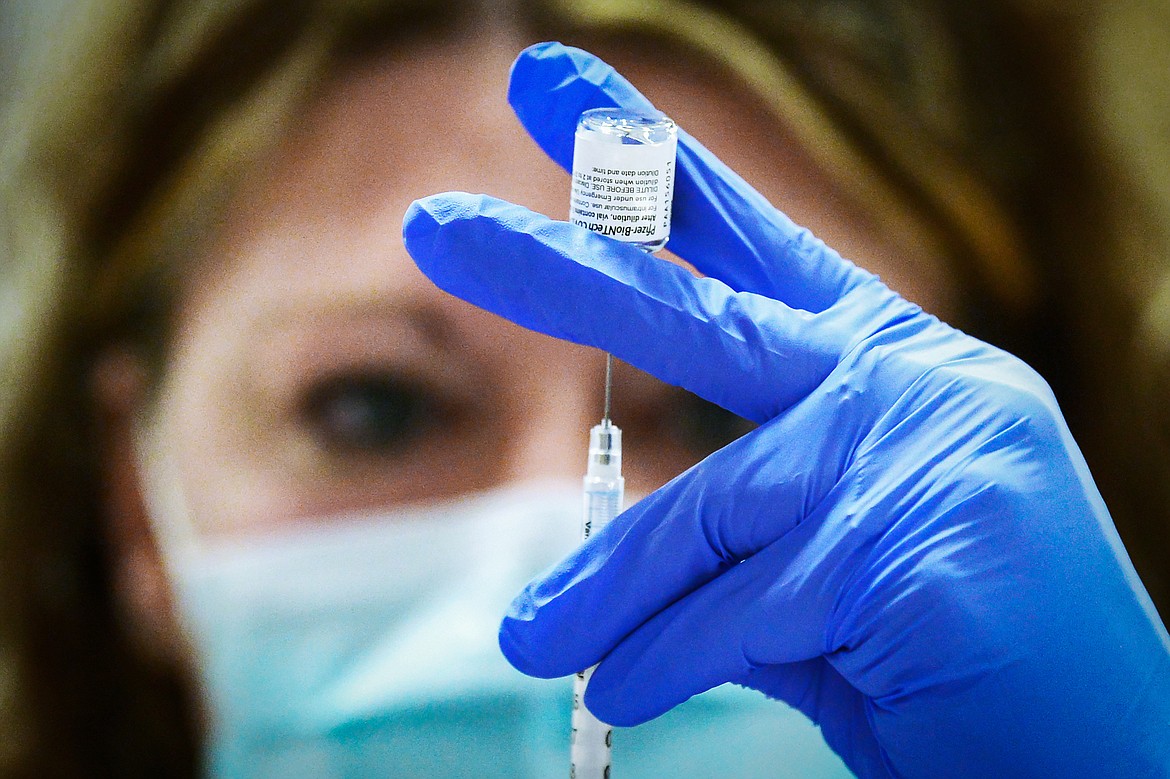Montana bill aims to stop work bias based on vaccine status
HELENA (AP) — Montana's Legislature has passed a bill that would prohibit employers from requiring vaccinations as a condition of employment — a measure that could block a Great Falls health system from requiring its employees to get COVID-19 shots.
The bill makes it an unlawful discriminatory practice for a person or governmental entity to deny services, goods, privileges, licensing, educational opportunities or employment opportunities based on vaccination status or whether someone has an immunity passport.
It passed the House on Monday and now goes to Republican Gov. Greg Gianforte for consideration. He has not said if he will sign the measure.
Supporters of the bill include some employees of Benefis Health System in Great Falls, who were told they would have to get COVID-19 vaccinations to continue working.
"Currently, there's no Montana state law allowing employers to require vaccines as a condition of employment because up to now Montana employers have respected the fundamental, personal, medical and religious freedoms of Montanans," Republican Sen. Tom McGillvray of Billings said last week in presenting the bill in the Senate.
"However, that's not the case anymore," he said. "There are employers ... that are requiring and coercing employees to get vaccinations under threat of termination and intimidation."
The bill still allows employers to strongly recommend vaccinations and "does not in any way prevent any employer from taking reasonable safety precautions, just as any hospital currently does, with an employee who does not have a flu shot," the bill's sponsor, Republican Rep. Jennifer Carlson of Manhattan, said Monday.
Under the bill, employers would not be allowed to require employees to receive vaccinations that are being distributed under emergency use authorization, under which the Food and Drug Administration has authorized COVID-19 shots to be administered.
Whitney Bania, a spokesperson for Benefis Health System, declined to comment on the bill's passage by the Legislature.
Health care organizations were concerned about language in the bill that says employers can't discriminate against a person in a term, condition or privilege of employment based on vaccination status.
The Montana Hospital Association and other health care organizations interpreted that to mean they couldn't take precautions such as requiring an unvaccinated employee to wear a mask, and would thus have to treat every employee as if they were not vaccinated. That would lead to visitation restrictions, the groups said.
"The language of the bill, as written, will prevent healthcare facilities from screening potential employees in the hiring process without violating the newly created discrimination provisions in the bill," the Montana Hospital Association said Tuesday.
The association also believes the bill would prohibit medical facilities from requiring vaccinations for employees who have direct contact with patients and the public.
Republican Rep. Llew Jones of Conrad said he, too, was concerned about the bill until he spoke with Carlson, Lt. Gov. Kristen Juras and the chief executive officer of the Northern Rockies Medical Center in Cut Bank and received assurances the bill would not cause visitation limits at hospitals and nursing homes.
"We have not had that communication and we do see the bill differently," Katy Peterson, spokesperson for the Montana Hospital Association, said after the bill passed the House on its final reading.
The association is consulting with attorneys.
"It is our goal to identify the necessary steps to remain in compliance with all applicable state and federal laws while mitigating any negative impacts on patient and staff safety," the MHA said in a statement.
Hospital officials argue the bill goes beyond addressing objections to COVID-19 vaccinations.
The bill "unravels more than 50 years of medical science and expert guidance in protecting patients and health care workers from infectious diseases," Rich Rasmussen, president and CEO of the Montana Hospital Association, told reporters.
The health organizations had hoped the bill would be amended to address only concerns about COVID-19 vaccination requirements.
An amendment does clarify that the bill does not affect vaccine requirements at schools and day care facilities, where people can seek religious or medical exemptions to vaccinations.

